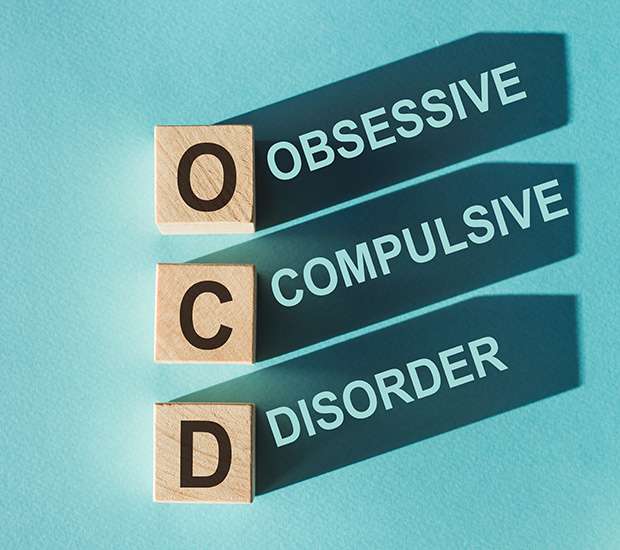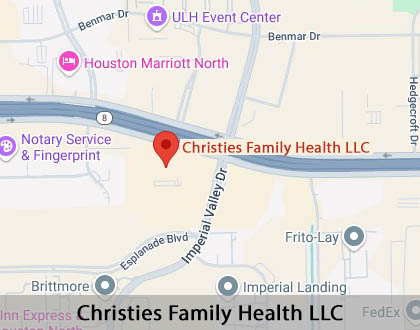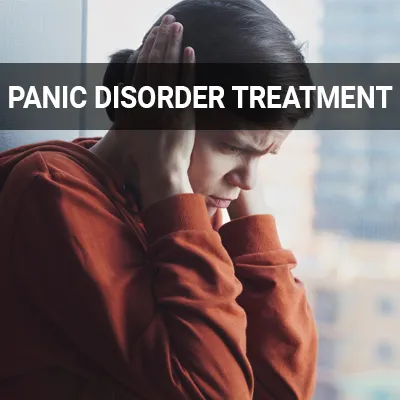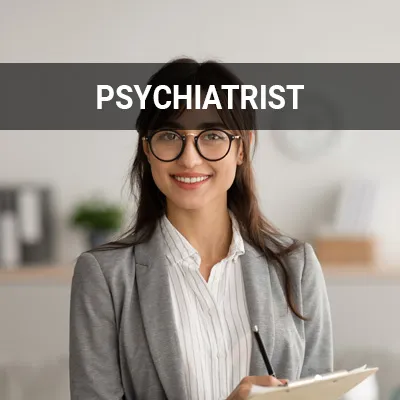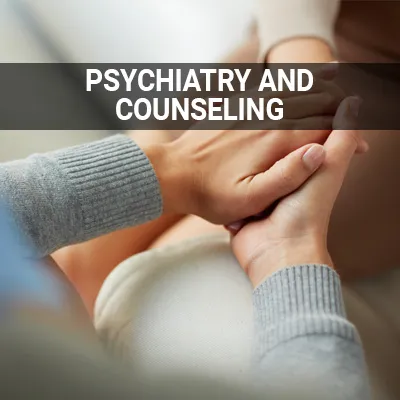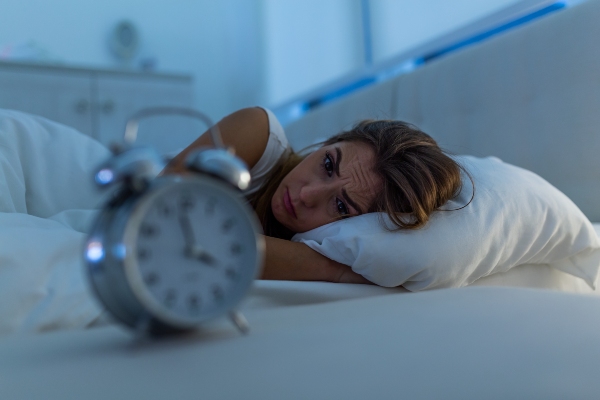OCD Treatment Houston, TX
Obsessive-Compulsive Disorder (OCD) can leave people feeling on edge in even the most mundane moments. Without the proper treatment, performing everyday activities can feel like a struggle. We aim to provide personalized OCD treatment for each of our patients and their unique needs.
OCD treatment is available at Christies Family Health LLC in Houston and to patients in the surrounding area. Do not hesitate to find relief for your symptoms. Call us today at (832) 915-1818 to schedule an appointment or learn more about our services.
Understanding OCD
OCD, or obsessive-compulsive disorder, is a mental health disorder that can affect patients of all ages and lifestyles. As the name suggests, the disorder is characterized by a cycle of obsessions and compulsions. According to the International OCD Foundation, obsessions are "unwanted, intrusive thoughts, images, or urges that trigger intensely distressing feelings." People with OCD partake in compulsions to purge their obsessions and decrease their distress. For example, if someone has an obsessive fear of being contaminated by germs, they may compulsively wash their hands.
While most people experience obsessive thoughts and compulsive behaviors at some point during their lifetimes, that does not mean that everyone has "a little bit of OCD." Instead, a licensed psychiatrist can make a diagnosis when the cycle of obsessions and compulsions becomes extreme enough to consume a considerable amount of time and disrupt important activities that the patient values.
“As the name suggests, the disorder is characterized by a cycle of obsessions and compulsions.”
Symptoms of OCD
Though most patients with OCD have both obsessions and compulsions, it is possible to have only obsessions or only compulsions. For many patients, their obsessions and compulsions have become so normalized that they do not realize they are excessive or unreasonable. In reality, these issues take on a great deal of time and interfere with activities of daily living, along with social, school, or work functioning.
Obsessions
Obsessions in OCD are intrusive, distressing, repetitive, persistent, and unwanted images, thoughts, or urges. Patients may try to ignore obsessions or purge them by performing a compulsive behavior or ritual. Still, OCD obsessions are likely to intrude when the patient is trying to think of or do other things.
Common themes of obsessions include fear of contamination or dirt, needing things orderly and symmetrical, doubting and having difficulty tolerating uncertainty, aggressive or horrific thoughts about losing control, and harming oneself or others.
Compulsions
OCD compulsions are repetitive behaviors or thoughts that a patient feels compelled to perform. In either case, the compulsions are meant to reduce any obsession-related anxiety and to prevent something bad from happening. Unfortunately, performing these compulsions brings no pleasure. Any relief they bring from anxiety is only temporary. Some patients may make up rules or rituals to follow to help control their anxiety when not having obsessive thoughts.
These are excessive compulsions that are usually not realistically related to the problem they are meant to fix. Common themes of compulsions include:
- Washing and cleaning
- Counting things often
- Needing things in a specific order
- Checking something repeatedly
- Following a strict routine
- Demanding reassurance
Early-Occurring Symptoms
OCD can start in childhood, but it usually begins in the teen or young adult years. Symptoms will appear gradually and tend to vary in severity throughout life. Patients may also experience different types of obsessions and compulsions over time. In some cases, symptoms typically worsen when experiencing greater stress.
Usually considered a lifelong disorder, OCD may have mild to moderate symptoms or severe, disabling ones. In any case, patients should seek professional psychiatric care if their obsessions or compulsions are affecting their quality of life in any way.
“Though most patients with OCD have both obsessions and compulsions, it is possible to have only obsessions or only compulsions.”
Diagnosing OCD
There may be several steps involved in diagnosing OCD, including a psychiatric evaluation using diagnostic criteria for OCD and a physical exam. As a psychiatrist, we may conduct the psychiatric evaluation that involves discussing any thoughts, feelings, symptoms, and behavior patterns the patient may have to determine if they are dealing with obsessions or compulsive behaviors interfering with their quality of life. Some patients may also give their doctor permission to talk to their family or friends about such behaviors.
Furthermore, the psychiatric evaluation will likely be using the criteria in the Diagnostic and Statistical Manual of Mental Disorders (DSM-5), published by the American Psychiatric Association. A physical exam may be necessary to rule out any other problems that could be causing the symptoms or to check for any related complications.
Diagnosing OCD can sometimes be difficult as the symptoms can be similar to several other mental health conditions. These include anxiety disorders, depression, schizophrenia, and other mental health disorders. It is also possible to have OCD and one or more mental health disorders at the same time. As such, it is imperative that patients work together with their doctors to make sure they get the most appropriate diagnosis and treatment.
“There may be several steps involved in diagnosing OCD, including a psychological evaluation using diagnostic criteria for OCD and a physical exam.”
Check out what others are saying about our mental wellness services on Yelp: OCD Treatment in Houston, TX
Types of OCD Treatment
Though OCD treatment may not result in a cure, it can help control symptoms, so they no longer rule one's daily life. The type of treatment one needs depends on how severe the symptoms are. The two main types of treatment for OCD are psychotherapy and medications, with a combination of the two often being the most successful.
Cognitive-behavioral therapy (CBT) is a type of psychotherapy commonly used for persons with OCD. There is a component of CBT known as exposure and response prevention (ERP). In ERP, the patient is gradually exposed to a feared object or obsession. The psychiatrist will then help the patient learn healthy ways to resist the urge to perform their compulsive rituals.
Certain psychiatric medications can help control OCD obsessions and compulsions. Antidepressants are most commonly tried first. Common antidepressants include clomipramine (Anafranil), fluoxetine (Prozac), fluvoxamine, paroxetine (Paxil, Pexeva), and sertraline (Zoloft). Other antidepressants and psychiatric medications may also help. When choosing a medication, there are several factors to consider, including side effects and drug interactions. A doctor can help discuss these factors in detail with each patient.
At times, psychotherapy and medications are not sufficient to control OCD symptoms. In such cases, other options may be explored. For example, people with treatment-resistant cases may want to consider intensive outpatient and residential treatment programs, deep brain stimulation (DBS), and transcranial magnetic stimulation (TMS).
“Though OCD treatment may not result in a cure, it can help control symptoms, so they no longer rule one’s daily life.”
Questions Answered on This Page
Q. What is OCD?
Q. What are some symptoms of OCD?
Q. What are the different types of OCD treatment?
Q. What are some of the benefits of OCD treatment?
People Also Ask
Benefits of OCD Treatment
Since symptoms tend to get in the way of one's everyday life, there are several reasons why one may want to seek treatment for OCD. Alleviating one's symptoms can help greatly improve one's social life, professional life, school life, and more. For best results, patients may want to combine different treatment modalities, such as medication and CBT.
According to the International OCD Foundation, medication is a generally effective treatment for OCD. Additionally, approximately seven out of 10 people with OCD will benefit either from medication or ERP. Patients who benefit from medication also typically see their OCD symptoms reduced by 40% to 60%. However, medication must be taken regularly and as directed for it to work. Patients experiencing side effects should bring them up with their doctor so they can be addressed. It may be necessary to change the medication dosage or to change the medication altogether.
“Since symptoms tend to get in the way of one’s everyday life, there are several reasons why one may want to seek treatment for OCD.”
Frequently Asked Questions
Q. What are the risk factors for OCD?
A. While the causes of OCD are unknown, the disorder can affect people of all ages and lifestyles. Most people are diagnosed around age 19, and the disorder tends to have an earlier age of onset in boys than in girls. However, onset after age 35 is possible. Risk factors of OCD include brain functioning, brain structure, environment, and genetics.
Q. How common is OCD?
A. According to a recent study, obsessions and compulsions are relatively common in the general population — reported in over 28% of people. However, OCD is only diagnosed when obsessions and compulsions become pathological in nature. Thus, diagnosable OCD is found in 1.6% to 2.5% of the population.
Q. Do people with OCD really believe in their obsessions and compulsions?
A. Most people with OCD know very well that their obsessions and compulsions are irrational. However, this does not help weaken the obsessive distress they feel or make their compulsions go away. In fact, this may lead to a heightened degree of shame, embarrassment, and isolation.
Q. What is the difference between an obsession and a worry?
A. A major difference lies in the nature of the worry, anxiety, or fear. Patients with a generalized anxiety disorder (GAD) may have worries that involve real-life situations but excessive degrees of apprehension. In contrast, OCD obsessions usually involve unrealistic fears.
Q. Does OCD ever get worse?
A. OCD typically gets worse with stress or age if not treated properly. As such, it is imperative for patients to seek a doctor as soon as they notice symptoms. Treatment has a greater chance of success if begun early.
Change Is Possible – Call Us Today
Life isn't always easy. Are you struggling? Are you looking for a highly personalized and professional approach tailored to your individual needs? Instead of waiting around, call us today. You should know that there is hope for a better tomorrow.
Definitions
Call Us Today
Obsessive-compulsive behaviors do not have to rule your life. We at Christies Family Health LLC can help you learn more about OCD and how to manage its symptoms. Call us today at 832-915-1818 to schedule an appointment or learn more about our services.
Helpful Related Links
- Agency for Healthcare Research and Quality. Agency for Healthcare Research and Quality. 2024
- American Psychiatric Association (APA). American Psychiatric Association (APA). 2024
- Psychology Today. Psychology Today. 2024
- The American Board of Professional Psychology. The American Board of Professional Psychology. 2024
- The American Journal of Psychology. The American Journal of Psychology. 2024
- The National Association of Behavioral Healthcare. The National Association of Behavioral Healthcare. 2024
About our business and website security
- Christies Family Health LLC was established in 2021.
- We accept the following payment methods: American Express, Check, Discover, MasterCard, and Visa
- We serve patients from the following counties: Harris County
- We serve patients from the following cities: Houston, Aldine, Jersey Village, Humble, and East Aldine
- Norton Safe Web. View Details
- Trend Micro Site Safety Center. View Details
Back to top of OCD Treatment
